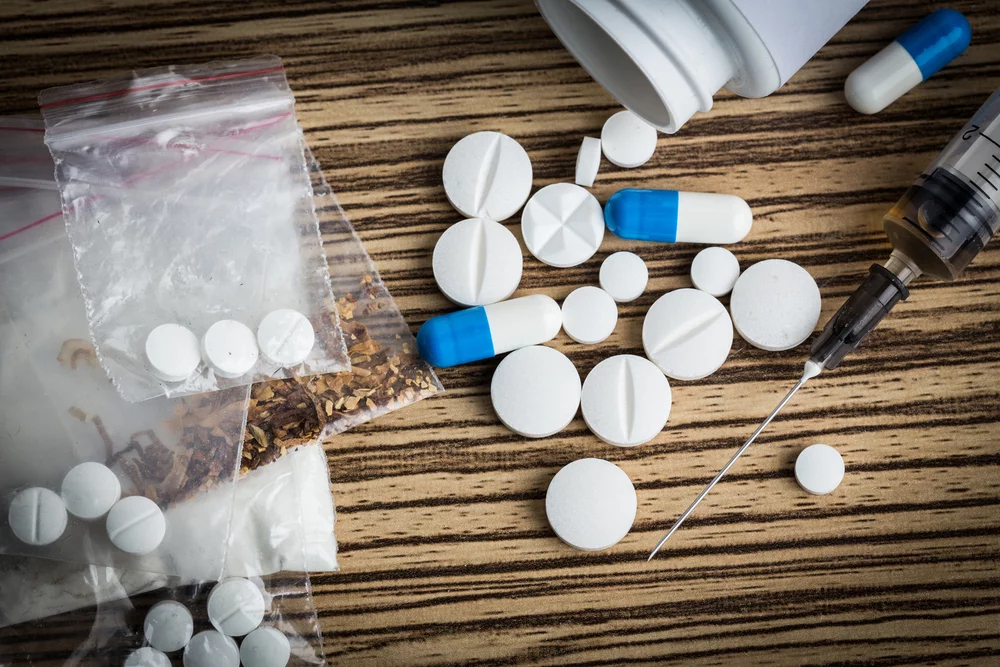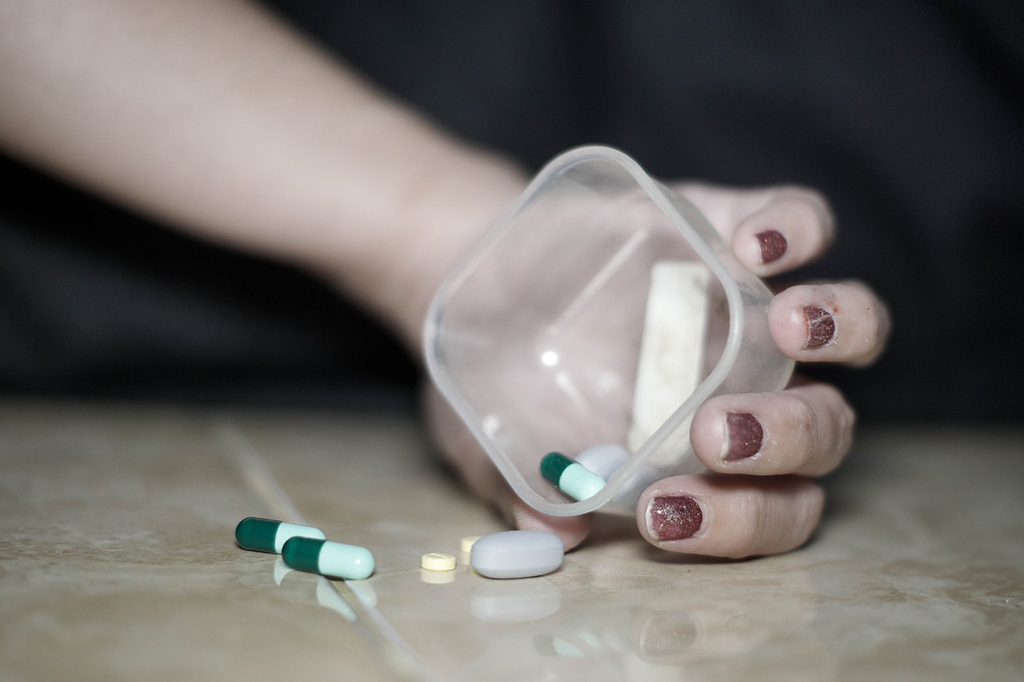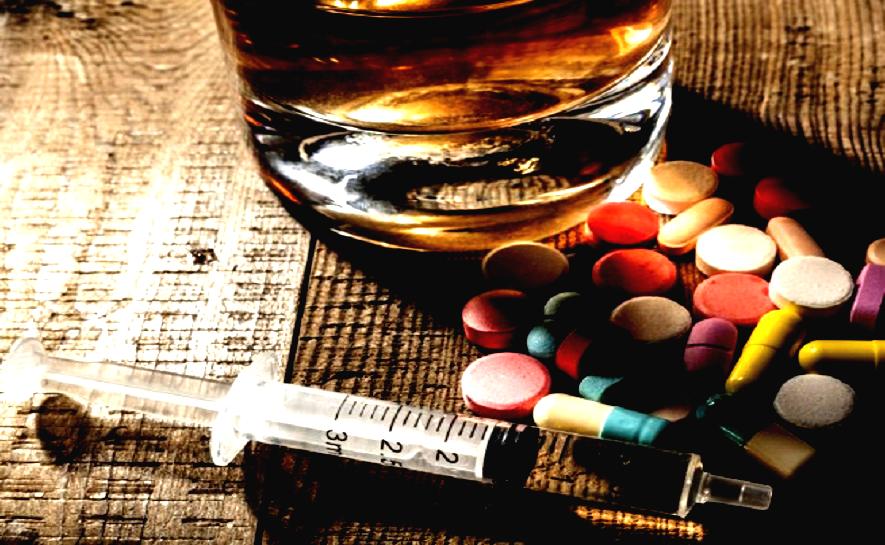The 12-Step programme and other holistic treatment approaches are highly effective in aiding addicts through recovery, but it is also well understood that the longer the person has had their addiction, the longer and more difficult the road to recovery will be.
Some people consider their own consumption habits to be harmless, particularly if they haven’t experienced serious problems yet as a result of taking the drugs. But whether the drug is alcohol, nicotine, heroin, cocaine, or any other addictive substance, many of the symptoms of addiction remain the same. The danger to health is also very real for any addictive substance.
It is essential, therefore, to learn how to identify addiction before it is too late. The journey out of addiction begins by raising one’s own awareness, and accepting the seriousness of the disease. Here we describe five major common signs of drug use, and what to do if you recognise any of these signs in yourself or someone you know.
1. Drug-Seaking
It might start out on the weekends only, or maybe a regularly attended happy hour, but it is cause for concern when a person spends excessive amounts of time and energy searching for their drug of choice. One should also be aware of their motivation for seeking drugs: Is it a result of pressure put on by colleagues or friends? Alternatively, do they use drugs as their escape from stress or hardship, or to satisfy real physical cravings for the drug? Context is important, and people may experience intense urges or cravings for the drug as their addiction develops.
With the rampant increase in opioid addiction, identifying drug-seeking behaviour has become a much-discussed topic among physicians in particular. Individuals who are addicted to painkillers, for example, may exaggerate symptoms of pain or shop around at different doctors or pharmacies to get the drug that they want.
2. Increased Tolerance and Withdrawal
Tolerance is another sign of drug use that is relatively easy to monitor through observation. When a drug is used repeatedly over time, the body naturally builds up a greater resistance to the drug. This phenomenon causes people to continually increase their dosage in order to achieve the same intensity of effect that they remember from their early use.
Take notice of any increases in resistance for yourself or people you know. Be wary of using prescription painkillers for an extended period of time, or steadily increasing the amount taken. For recreational drugs, an easy way to identify increased tolerance is if you are spending more money on your high, or needing to use other substances to intensify the effects of your drug of choice.
As people continue to use drugs over a period of time, changes in physiology inevitably occur and leave them feeling worse when the drug has left their system. This process is called withdrawal. The longer a drug is used, the more intense the withdrawal can become, until the person is too scared to discontinue use because he or she knows it will cause them to feel horrible. As tolerance increases, withdrawal symptoms may become more apparent, particularly when individuals are not able to access large quantities of their drug of choice.
3.Neglecting Responsibilities
In the early stages of addiction, a person might feel that they are able to maintain a balance between their normal life and using drugs. But as addiction advances, drug use will take precedence over work, relationships, or personal obligations. When people start using new substances, they are more likely to choose to spend more time with others who have similar habits. The people in this group will then defend or legitimise irresponsible behaviour for selfish reasons.
Take a second look if you notice that people you know seem to have lost interest in things that once really mattered to them, or if they consistently call out of work or cancel appointments.
4. Impaired Judgment
Drug use in any amount can lead to impaired judgment. This is largely due to the effect that drugs have on our brains and bodies. The good feelings that people might initially get from using drugs can also cause them to ignore logic and reason in many situations. Poor judgment as a result of drug use might cause people to get into fights with others they care about. The same factors also increase the likelihood that they will engage in risky behaviour such as unsafe sex or driving under the influence, or begin gambling compulsively.
In the middle to late stages of addiction, however, a person’s standards for acceptable behaviour will continue to decline as they become increasingly single-minded about preserving their ability to get and use drugs. They may do anything to obtain the focus of their addiction, including stealing, lying, or committing crimes. People may begin by borrowing small amounts of money from friends and family, then start asking for more – or even stealing from people who once trusted them. This sort of anti-social or self-destructive behaviour is another major warning sign of drug use and addiction.
5. Physical Signs and Symptoms
For people using drugs regularly, changes in appearance can be dramatic. Sick-looking skin, physical shaking, dilated pupils, red eyes, slurred speech and a dry mouth are among the physical symptoms often present in people who use drugs. Visible fatigue and weight loss is another common sign of drug use, as the appetite for food is diminished when the body craves drugs instead. The particular type of weight loss normally associated with drug use is an unhealthy one, however, as it results in part from the body’s inability to receive and process the nutrients it needs for healthy living.
A lack of interest in maintaining a healthy physical appearance can indicate drug use, as the person may lose interest in their social connections. Poor grooming habits, as well as dirty or inappropriate clothing, are other symptoms of this phenomenon. When the person is experiencing withdrawal from their drug, the physical symptoms can be even easier to see. Relevant symptoms include sweating, headaches, fever – even seizures. Nausea and depression are also associated with drug withdrawal, as the body is reacting to the absence of a chemical on which it now depends.
What to Do if You Identify These Signs of Drug Use
When it comes to signs of drug use, it is rare that any of the above-mentioned signs exist on their own. In fact, some signs actually have the effect of hiding others. For example, the tendency to dissolve personal or family relationships, or cancel appointments, is often done so that no one else can see the physical symptoms.
Given the likely attempts at keeping drug use secret, it is important to be especially vigilant if you suspect that a friend or loved one is using or abusing drugs. Addiction is easiest to stop before it spirals out of control, but catching it early often depends on knowing what to look for. The warning signs listed above can indicate drug use, and should be taken seriously.
If you or someone you know may be using drugs, it is strongly recommended to seek professional help before the situation becomes worse.
Professional Treatment at The Dawn Rehab
At The Dawn, we give comprehensive service to those suffering from drug addiction and other serious conditions. Our treatment begins with a programme of detoxification, but also includes personal therapy, group counselling, and a special focus on addressing the psychological aspects of addiction.
Our holistic approach to treatment is personalised for each client. In many cases, addiction stems from deeper personal issues, which may be revealed and dealt with through therapy sessions. Clients at The Dawn will receive the training and resources to deal with their addiction in a successfully and positive way moving forward.
Contact us today to learn about our addiction treatment services, and take comfort in knowing that the path to clean and healthy living is just a phone call away.
Related Posts
 What You Need to Know About Opioid Withdrawal Symptoms, Detox and Treatment
Opioid addiction is becoming a global problem and is currently the primary cause of drug overdose in the U.S. Opioids such as morphine and codeine are synthetic drugs that cause the...
What You Need to Know About Opioid Withdrawal Symptoms, Detox and Treatment
Opioid addiction is becoming a global problem and is currently the primary cause of drug overdose in the U.S. Opioids such as morphine and codeine are synthetic drugs that cause the...
 Too Much to Take: Warning Signs of Drug Overdose
The possibility of overdose is a harsh reality for those dealing with drug addiction. Knowing the specific signs of an opioid, benzo, alcohol, or stimulant overdose can save a life....
Too Much to Take: Warning Signs of Drug Overdose
The possibility of overdose is a harsh reality for those dealing with drug addiction. Knowing the specific signs of an opioid, benzo, alcohol, or stimulant overdose can save a life....
 Medical Detox: An In-Depth Guide
Deciding you have an alcohol or drug addiction and considering a medical detox is the first step towards taking your life back. The idea of quitting can feel overwhelming for...
Medical Detox: An In-Depth Guide
Deciding you have an alcohol or drug addiction and considering a medical detox is the first step towards taking your life back. The idea of quitting can feel overwhelming for...
 Why Drugs Are Addictive : What Turns a Regular Person into an Addict?
The drugs that harm your body, your relationships and your community have the highest possibility of addiction and abuse. Why are some drugs so irresistible that even people who use...
Why Drugs Are Addictive : What Turns a Regular Person into an Addict?
The drugs that harm your body, your relationships and your community have the highest possibility of addiction and abuse. Why are some drugs so irresistible that even people who use...





